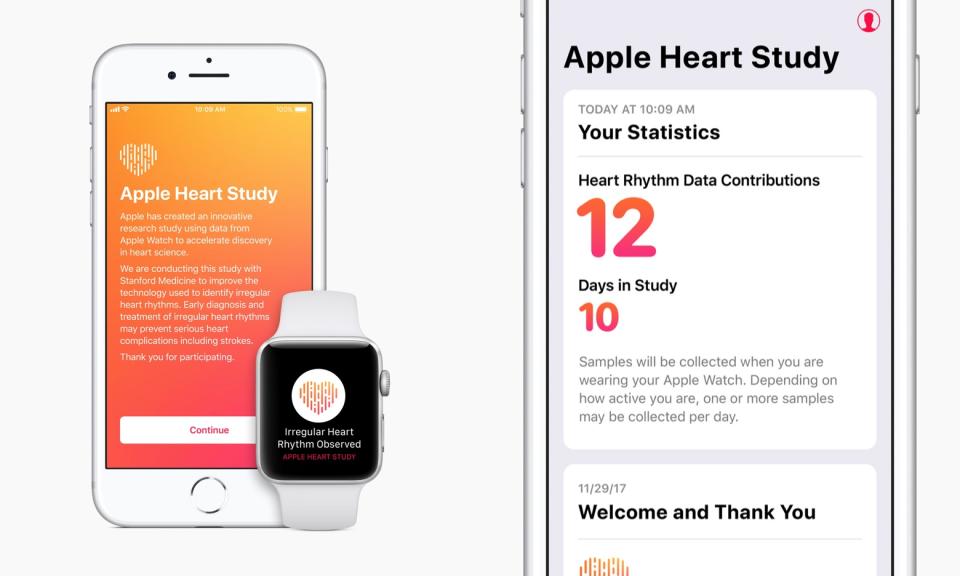Stanford begins irregular heartbeat research using Apple Watch data
An app called Apple Heart Study is available to download today.
Back in September, Apple announced improvements for the heart monitoring features of its Watch. Specifically, Apple wanted the Watch to be able to detect atrial fibrillation (AFib), or irregular heartbeats, in its users, which often has no symptoms and goes diagnosed. Today, Apple launched the Apple Heart Study app with Stanford Medicine. The goal is to study and improve upon the technology we currently use to detect AFib.
AFib is currently the leading cause of strokes; it leads to 130,000 deaths and 750,000 hospitalizations every year just in the US. The app uses the heart rate sensor of the Apple Watch in order to specifically identify irregular heart rhythms. The Apple Watch's heart rate sensor works by using a green LED that flashes very quickly in order to gather data on how much blood is flowing through your wrist at any given point in time.
To participate in the study, you can download the Apple Heart Study app. You must be 22 years or older and have an Apple Watch. If an AFib is detected, users will receive a push notification, as well as a free consultation with a doctor that's a part of the study and an electrocardiogram patch for further monitoring of the condition.
Apple has discussed wanting to improve the health features of the Apple Watch, and this new study makes it clear how serious the company is. With the release of both HealthKit and ResearchKit, and now this study, Apple is positioning the Apple Watch as a true health monitoring device that can be crucial for preventative care. Jeff Williams, Apple's COO, said, "Working alongside the medical community, not only can we inform people of certain health conditions, we also hope to advance discoveries in heart science."



